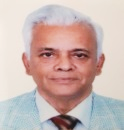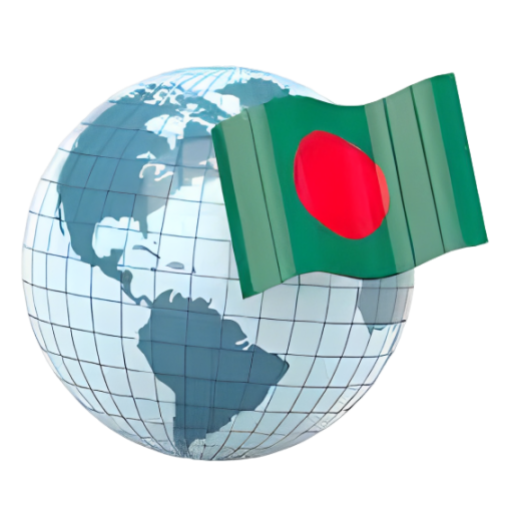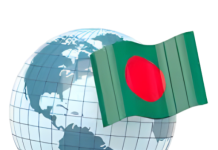The reciprocal political and economic relations between supposedly democratic Bangladesh and Qatar, an authoritarian monarchy, have been quite productive particularly during the past decade. The key determinants of their relationships are mutual respect, a shared vision to promote peace and prosperity, and a common religious tradition.
Notably, Qatar extended diplomatic recognition to Bangladesh in March 1974. Bangladesh inaugurated its diplomatic mission in the capital, Doha, in June 1975. Almost seven years later, Qatar opened its diplomatic mission in Dhaka in 1982. Both are predominantly Muslim majority countries and continue to support each other in the international fora.
The former ruler of Qatar, Sheikh Hamad bin Khalifa Al- Thani, the architect of modern Qatar and its dynamic foreign policy, formally visited Bangladesh in April 2005 and laid a solid foundation for mutual cooperation.
Upon the gracious invitation of Qatar’s current Emir Sheikh Tamim bin Hamad Al Thani, Professor Muhammad Yunus, the Chief Adviser of the Bangladesh Interim Government, embarked on a four-day official visit to Qatar commencing on 21 April 2025.
The Foreign Affairs Adviser Md. Touhid Hossain, Energy Adviser Muhammad Fouzul Kabir Khan, National Security Adviser Dr. Khalilur Rahman, Bangladesh Investment Development Chairman Chowdhury Ashik Mahmud Bin Harun, Principal Coordinator on SDG Affairs Lamiya Morshed, and Principal Coordinator on SDG Affairs Lamiya Morshed, as well as four national women athletes from Bangladesh, accompanied the Chief Adviser during the visit.
The key objectives of the visit were to discuss issues of mutual interest and the firming up of bilateral relationships between the two countries. Professor Yunus met Prime Minister of Qatar Shaikh Mohammed bin Abdulrahman bin Jassim Al Thani in his office and discussed issues of common interest apart from attending several high-level meetings at the summit. Yunus sought Qatar’s comprehensive support—diplomatic, financial, and investment—to build a “New Bangladesh.” The Qatari PM assured that it will provide all possible assistance to reconstruct Bangladesh.

Professor Yunus presented a keynote paper at the Earthna Summit 2025. About 1,000 persons from more than 100 countries, including ministers, business leaders, scholars, and youth leaders, participated in the summit. The summit, reflected as “Building our Legacy: Sustainability, Innovation, and Traditional Knowledge,” highlights Qatar’s commitment to advancing sustainability in hot and arid environments by drawing on its rich cultural heritage and unique ecosystem’s. Yunus observed that the challenges are significant.
Professor Yunus urged global investors to invest in Bangladesh, as the country has vast business potential. He made the call while speaking at a private business reception on the sidelines of the Earthna Summit. Yunus said Bangladesh is an incredible country with a lot of possibilities and potential in terms of economy, mentioning that Nepal and Bhutan, which are close neighbours to Bangladesh, and the seven sister states of India have no access to the ocean.
While addressing a separate roundtable conference on the ‘Social and Environmental Challenges around Forcibly Displaced Populations: The Case of the Rohingya,’ Professor Yunus sought the Qatar government’s proactive role in engaging the OIC countries to raise more funds for them. He said that Rohingyas posed enormous challenges to Bangladesh and might affect regional security and stability if the crisis lingered further. Bangladesh is currently hosting about 1.3 million forcibly displaced Myanmar nationals, while 32,000 newborns are being added yearly, as none of the displaced people from the Rakhine State could be returned after the outbreak of the crisis in 2017.
He called upon the government of Qatar to use its good offices in creating pressure on Myanmar for a speedy repatriation of the Rohingyas to their homeland. He also cited that global attention had increasingly been shifting from the Rohingya crisis due to the emergence of several new conflicts in different places of the globe.
Qatar Minister of State for Energy Affairs Saad bin Sherida called on Professor Yunus on the sidelines of the Earthna Summit. He also joined a meeting with Sheikh Thani bin Hamad bin Khalifa Al-Thani, chairperson of the Qatar Fund for Development, and also met Sheikh Moza bint Nasser, mother of the Emir of the State of Qatar and chairperson of the Qatar Foundation.
During a meeting with Qatar Charity’s Acting Chief Nawaf Abdullah Al Hammadi, Yunus sought support to introduce technology education for hundreds of thousands of madrasa students across the country. Qatar Charity continually contributes to help the Rohingya refugees sheltered in crowded camps in the Cox’s Bazar district of Bangladesh. In 2023, the Qatar Charity contributed more than $5 million to UNHCR in support of Rohingya refugees. Yunus praised the organization’s ongoing humanitarian efforts in Bangladesh, including its orphan sponsorship programs and LPG distribution for Rohingya refugees.
Qatar has been ruled by the Al-Thani royal dynasty since 1868. The country gained independence from the United Kingdom in 1971. It has the third-largest proven gas reserves in the world, after Russia and Iran. With absolute powers, Sheikh Tamim bin Hamad Al Thani became the Emir of Qatar in 2013. His government strives for “economic and social modernizations” as defined in Qatar’s National Vision 2030—a plan that aims to transform Qatar into a highly advanced country.
Bilateral relationships with Qatar are vital for Bangladesh for three main reasons, i.e., (a) Qatar is a dependable commercial and development partner; (b) it is the third-largest destination for Bangladeshi workers after Saudi Arabia and Malaysia; and (c) Qatar is an important exporter of much essential LNG and urea fertilizer to Bangladesh.
Bangladesh remains substantially dependent on Qatar for the supply of energy. To ensure an uninterrupted supply of liquefied natural gas (LNG), state-owned Petrobangla signed a new deal with Qatar Energy in June 2023. In fact, Qatar’s gas is in high demand across the world in the aftermath of the Russian invasion of Ukraine in February 2022. It has emerged as the biggest exporter of LNG in European countries.
At present, Bangladesh has been importing 1.82-2.5 million metric tons per annum (MTPA) of LNG under a former deal concluded in 2017. However, under the latest new contract, Qatar will supply an additional amount of LNG for another fifteen years, beginning from 2026 to 2040. The deal remains a remarkable milestone in relationships, ensuring the energy security of Bangladesh. Conversely, the energy deal is economically lucrative and augments Qatar’s geopolitical influence in Bangladesh.
Oil- and gas-rich Qatar is a top trading partner of Bangladesh in the Middle East. Qatar’s total exports to Bangladesh amounted to close to $2.74 billion during 2022, which was only $4.5 million in 2000. On the other hand, Bangladesh’s exports to Qatar increased to $89.43 million in 2022 from a meagre $2.37 million in 2000. Bangladesh is currently exporting ready-made garments, vegetables, tea, and processed foods.
Qatar has emerged as the third most important destination of the Bangladeshi overseas workforce, followed by the Kingdom of Saudi Arabia and Malaysia. Qatar has been recruiting workforces from Bangladesh since 1976. At present, about 400,000 workers are working in different sectors and industries, and the majority of them are unskilled. They are contributing to the development process of Qatar as well as Bangladesh. Workers in Qatar have sent about $1,346 million in remittances in 2021-2022.
Qatar has a better-quality education system to produce a qualified and skilled workforce for the nation. Under the Qatar Foundation scholarship, over one hundred Bangladeshi students are currently studying in different universities in Qatar. The government of Qatar generously donated about $1.27 million in March 2023 to support the education sector of Bangladesh.
In conclusion, the government of Bangladesh acknowledges Qatar as a reliable and significant global player, reflecting a mutual understanding and respect in their partnership. Professor Yunus is dedicated to fostering a robust strategic alliance aimed at enhancing relationships to unprecedented levels. Nevertheless, it is imperative for Bangladesh to actively advance its economic diplomacy and foster engagement with Qatar in order to further its national interests.

Kamal Uddin Ahmed
Dr. Kamal Uddin Ahmed is a former Professor and Chairman, Department of Political Science, University of Dhaka, Bangladesh. He has extensively contributed to the University of Dhaka through his teaching, research, and curriculum development. Dr. Ahmed has worked as a Senate Fellow in the California State Senate, USA in 1989 and subsequently as a Japan Foundation Fellow, Japan. As a Visiting Professor, he lectured at the Yokohama National University, Japan. Dr. Ahmed has to his credit more than 45 research papers published in referred journals at home and abroad. Dr Ahmed authored State of Human Rights in Japan in the New Millennium and Bangladesh and Its Neighbours (Asiatic Society of Bangladesh, 2008), and Reflections on Bangladesh and Global Issues (Student Ways, Dhaka, 2022). He edited a text book entitled American Political System (in Bengali) published by the University of Dhaka in 2007, and co-edited Migration and Migrants in the United States (1995). Dr Ahmed regularly contributes to Dhaka’s The Financial Express, New Age, and Daily Sun. E-mail: kamal112au@yahoo.com



